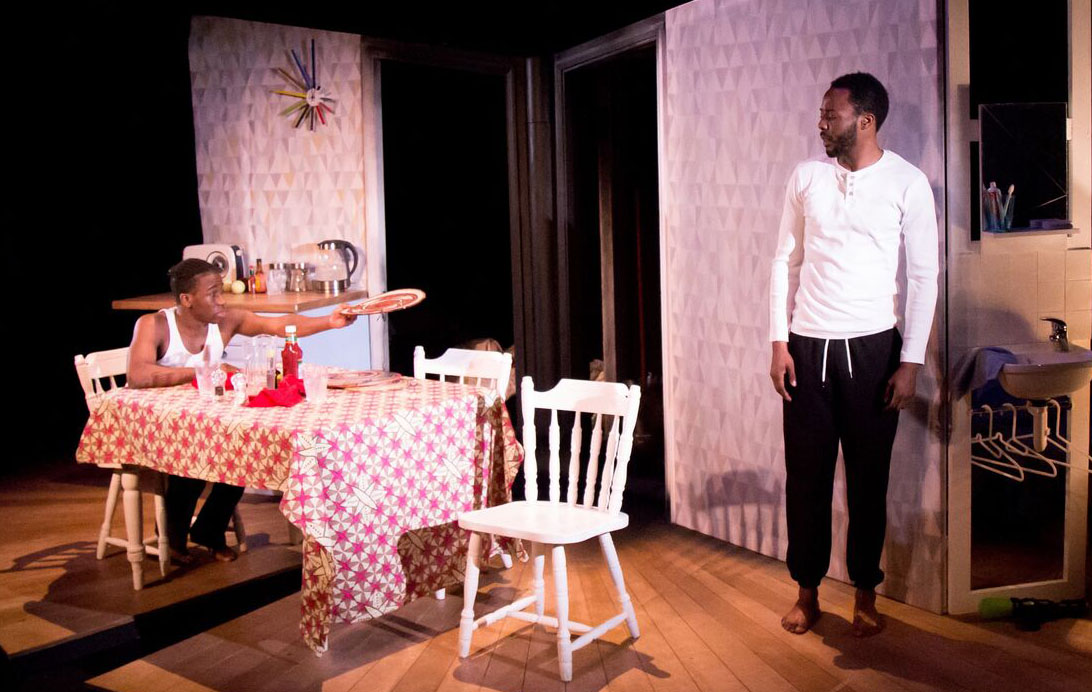
Bearing in mind the recent furore surrounding the issue of there being no black actors nominated for the Oscars again this year, it is encouraging to see that the Tiati Fahodzi company, resident at the Watford Palace Theatre, provides a welcome window of opportunity and voice for British African drama and dialogue.
Written and directed by artistic director Natalie Ibu, I Know… represents the company’s most ambitious production and tour so far. Ibu describes the motivation behind the play: “A transformative moment – where the play really found itself – was when I found out, over Facebook, that I had five half brothers in Nigeria that I didn’t know about. I found myself grieving five men that hadn’t died but were absent. I also started to think about the imprint my existence had had on their lives and the impact that knowing about them had on my sense of self. So I found the theme of grief, masculinity and absence/presence and then in 2012, I knew the story I wanted to tell.” I Know… bravely steps in to illustrate profound loss, a moment in two lives where words cease to have relevance, and where simple objects of remembrance start to take on iconic powers.
A dad (Solomon Israel) and his son (Samuel Nicholas in his debut performance) have been bereaved. A much-loved wife and mother is no longer there for them. In their small flat her presence lingers and continues to stoke their sense of loss. Her recorded answerphone message haunts them every time the phone rings. By night the father tries to recreate the comfort of his absent partner with pillows sprayed with her perfume. His son will build a makeshift mannequin dressed in her clothes. This man and boy are bewildered and in pain, yet their everyday lives have to go on.
I Know… works like a mime or a dance. With barely a word spoken throughout, it succeeds in much of its detail, but occasionally loses some of its power to engage. Anguish is an uncomfortable place to loiter, and while I accept that the play is essentially claustrophobic and the excellent Israel clearly had the power to convey meltdown, sometimes the lack of almost any spoken word lost the piece a chance to engage on different levels. Despite some lovely early passages of play between father and son, the piece demanded enormous subtleties between the two which I felt could have been explored more as grief took its toll on the relationship.
Helen Skiera’s industrial-sounding soundscape infused the play with underlying tension throughout, and the drama was enhanced with Azusa Ono’s lighting.
Tiati Fahodzi is seeking ‘to challenge our presumptions and reveal the African experience to British audiences in ways that are unusual and unexpected’. With I know… they have laid down a bold marker with a talented team that promises much for the future. ★★★☆☆ Simon Bishop 19th February 2016

